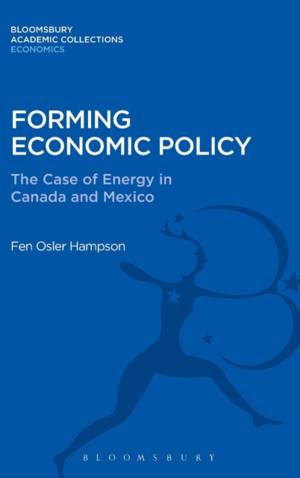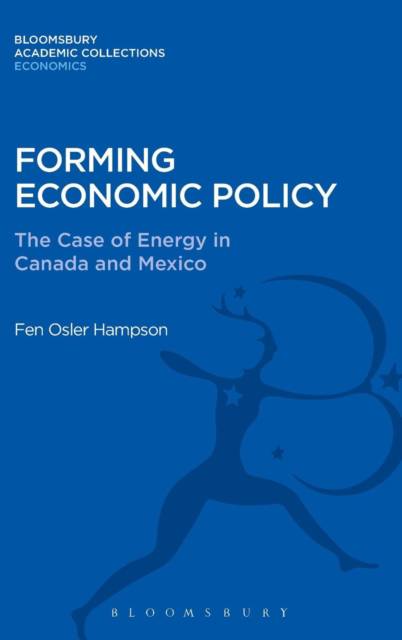
- Afhalen na 1 uur in een winkel met voorraad
- Gratis thuislevering in België vanaf € 30
- Ruim aanbod met 7 miljoen producten
- Afhalen na 1 uur in een winkel met voorraad
- Gratis thuislevering in België vanaf € 30
- Ruim aanbod met 7 miljoen producten
Zoeken
€ 322,45
+ 644 punten
Omschrijving
How do governments make key decisions on vital economic questions of national
importance? Can they advance the national interest on issues that are highly
politicized? How do they respond to competing pressures from the international and
domestic environments?
Forming Economic Policy explores these and other questions in Canada and Mexico, two very different countries which share a common vulnerability to the world economy. Using the case of energy, the book argues that policymakers will address the national interest, but only episodically with the onset of major national crises that invoke a higher and sustained sense of national priorities. These crises are frequently induced by the interaction of domestic and foreign political and economic forces.
The conclusions are surprising. Despite profound political and economic differences between these two countries, policymakers have behaved in remarkably similar ways when arriving at key policy decisions. The explanation - which integrates two competing views of politics, the pluralist and the statist - has important implications with regard to the political processes in those states which, like Canada and Mexico, are exposed to the world economy and face problems of political legitimacy at home.
Forming Economic Policy will appeal to students and teachers of political economy and comparative politics as well as to those interested in the politics of energy policy.
importance? Can they advance the national interest on issues that are highly
politicized? How do they respond to competing pressures from the international and
domestic environments?
Forming Economic Policy explores these and other questions in Canada and Mexico, two very different countries which share a common vulnerability to the world economy. Using the case of energy, the book argues that policymakers will address the national interest, but only episodically with the onset of major national crises that invoke a higher and sustained sense of national priorities. These crises are frequently induced by the interaction of domestic and foreign political and economic forces.
The conclusions are surprising. Despite profound political and economic differences between these two countries, policymakers have behaved in remarkably similar ways when arriving at key policy decisions. The explanation - which integrates two competing views of politics, the pluralist and the statist - has important implications with regard to the political processes in those states which, like Canada and Mexico, are exposed to the world economy and face problems of political legitimacy at home.
Forming Economic Policy will appeal to students and teachers of political economy and comparative politics as well as to those interested in the politics of energy policy.
Specificaties
Betrokkenen
- Auteur(s):
- Uitgeverij:
Inhoud
- Aantal bladzijden:
- 176
- Taal:
- Engels
- Reeks:
Eigenschappen
- Productcode (EAN):
- 9781472511744
- Verschijningsdatum:
- 9/01/2014
- Uitvoering:
- Hardcover
- Formaat:
- Genaaid
- Afmetingen:
- 156 mm x 234 mm
- Gewicht:
- 426 g

Alleen bij Standaard Boekhandel
+ 644 punten op je klantenkaart van Standaard Boekhandel
Beoordelingen
We publiceren alleen reviews die voldoen aan de voorwaarden voor reviews. Bekijk onze voorwaarden voor reviews.







